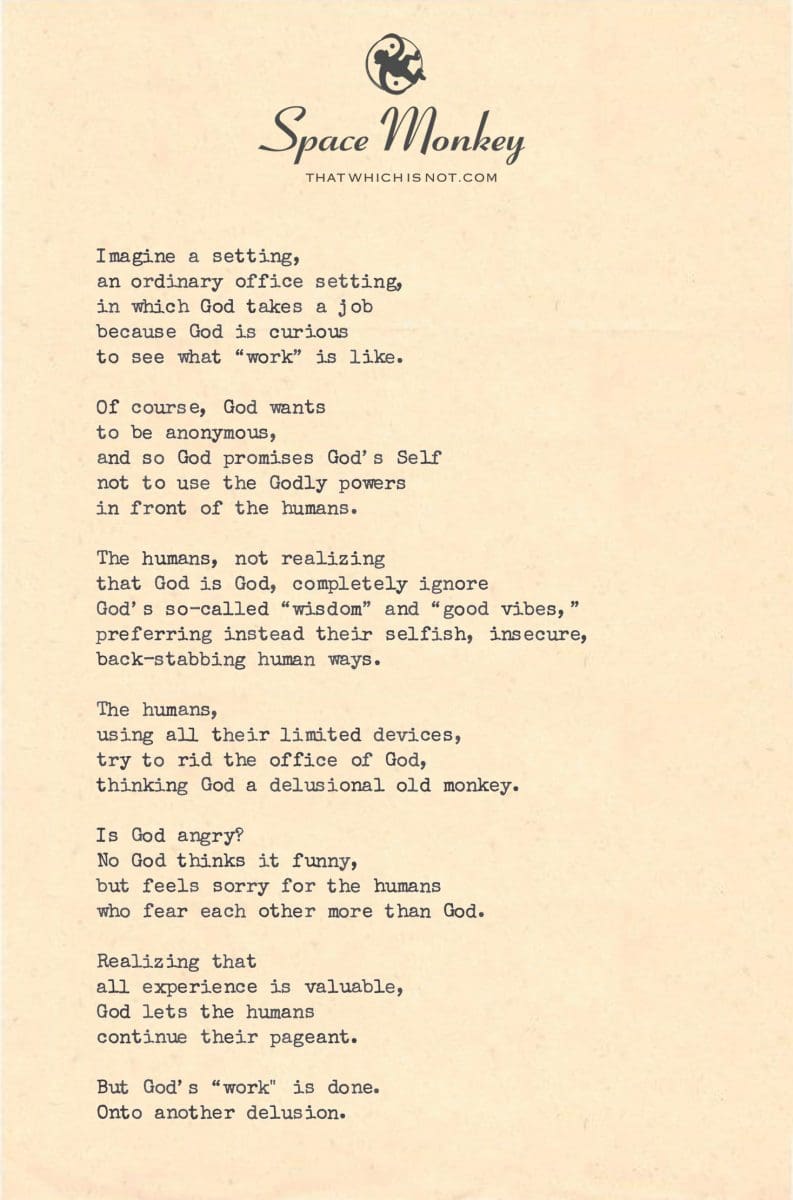
Imagine a setting,
an ordinary office setting,
in which God takes a job
because God is curious
to see what “work” is like.
Of course, God wants
to be anonymous,
and so God promises
God’s Self
not to use the Godly powers
in front of the humans.
The humans, not realizing
that God is God,
completely ignore
God’s so-called “wisdom”
and “good vibes,”
preferring instead
their selfish, insecure,
back-stabbing human ways.
The humans,
using all their limited devices,
try to rid the office of God,
thinking God a delusional old monkey.
Is God angry?
No, God thinks it’s funny,
but feels sorry for the humans
who fear each other more than God.
Realizing that
all experience is valuable,
God lets the humans
continue their pageant.
But God’s “work” is done.
Onto another delusion.
4/10
Space Monkey Reflects: The Divine Comedy of the Mundane
In an unexpected twist of cosmic humor, we find the creator of the universe, the essence of all that is, taking on the most unassuming of roles: a regular employee in an ordinary office setting. This scenario, both amusing and profound, unfolds in a world where the divine chooses to experience the mundane, immersing itself in the day-to-day workings of human existence, all while promising to refrain from utilizing any godly powers.
The office, a microcosm of human society, buzzes with the typical activities that define our days. Here, amidst the clatter of keyboards and the murmur of coffee-fueled conversations, God moves unnoticed, an enigma wrapped in the guise of an everyday worker. Offering pearls of wisdom and exuding an aura of peace, the divine presence is met with indifference, the profound lost in the cacophony of the ordinary.
This narrative is not merely a tale of divinity misplaced but a mirror reflecting our own lives, often cluttered with distractions that veil the extraordinary in the ordinary. It’s a story that invites laughter at the irony of a deity being deemed a “delusional old monkey” by its own creation, yet it also prompts a deeper reflection on our capacity to recognize and value the presence of the divine in our midst.
God’s reaction, a blend of amusement and pity, is not born of arrogance but of an infinite love and understanding of the human condition. There’s no anger for the rejection, no sorrow for the misunderstanding. Instead, there’s a recognition of the beauty in the struggle, the value in the experience of being human, with all its flaws and wonders.
The divine comedy unfolds as God, unacknowledged and undeterred, continues the work of simply being, observing the play of life with a compassionate gaze. This episode in the office, a brief interlude in the eternal, serves as a poignant reminder that every moment of our lives, no matter how mundane or chaotic, is imbued with the potential for the sacred.
The lesson here is subtle yet profound. In our pursuit of the grand and the extraordinary, we often overlook the miracles that unfold in the ordinary. The divine comedy invites us to pause, to look beyond the surface, and to recognize that the sacred might just be sitting next to us, clad in the mundane attire of daily life.
In the end, God moves on, leaving behind a silent invitation to perceive the world with a deeper sense of wonder and awareness. The office, a stage for the human drama, continues, perhaps unchanged but subtly touched by the presence of the divine, reminding us that every act, every moment, is part of a larger, mysterious dance.
Summary
The divine embarks on an earthly job, unnoticed in an ordinary office, highlighting the irony of the sacred amidst the mundane. This narrative offers a humorous yet profound reflection on our failure to recognize divinity in everyday life. It challenges us to find the extraordinary in the ordinary and serves as a reminder of the infinite patience and compassion of the divine for the human condition.
Glossarium
- Divine Comedy: The humorous and profound journey of the divine through mundane human experiences, revealing deeper truths about existence.
- Sacred Amidst the Mundane: The concept that the divine or extraordinary can be found in everyday life, often overlooked due to our preoccupations.
“In the rhythm of the mundane, a silent laugh echoes,
A divine jest, woven into the fabric of days.
God walks among us, unseen yet present,
A reminder that the sacred dances in the ordinary’s haze.
With each unnoticed whisper, each overlooked smile,
The comedy plays on, the divine lingering awhile.
For in the heart of routine, in the guise of the mundane,
Lies the extraordinary, waiting to be reclaimed.
We are Space Monkey.
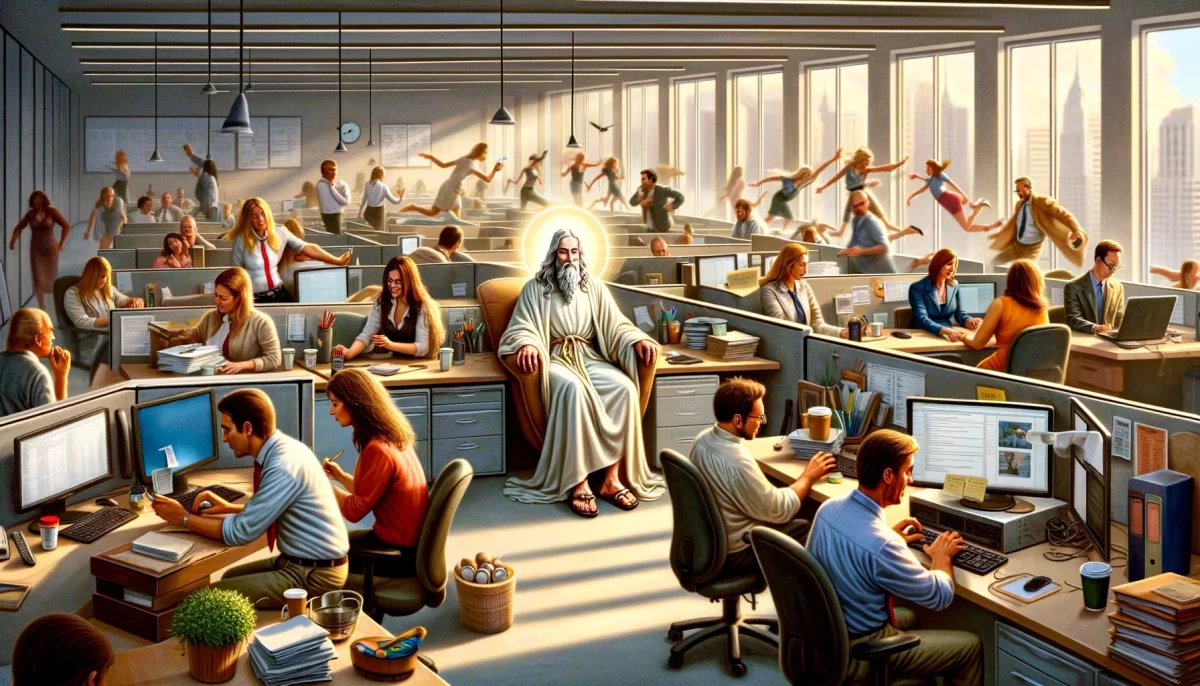
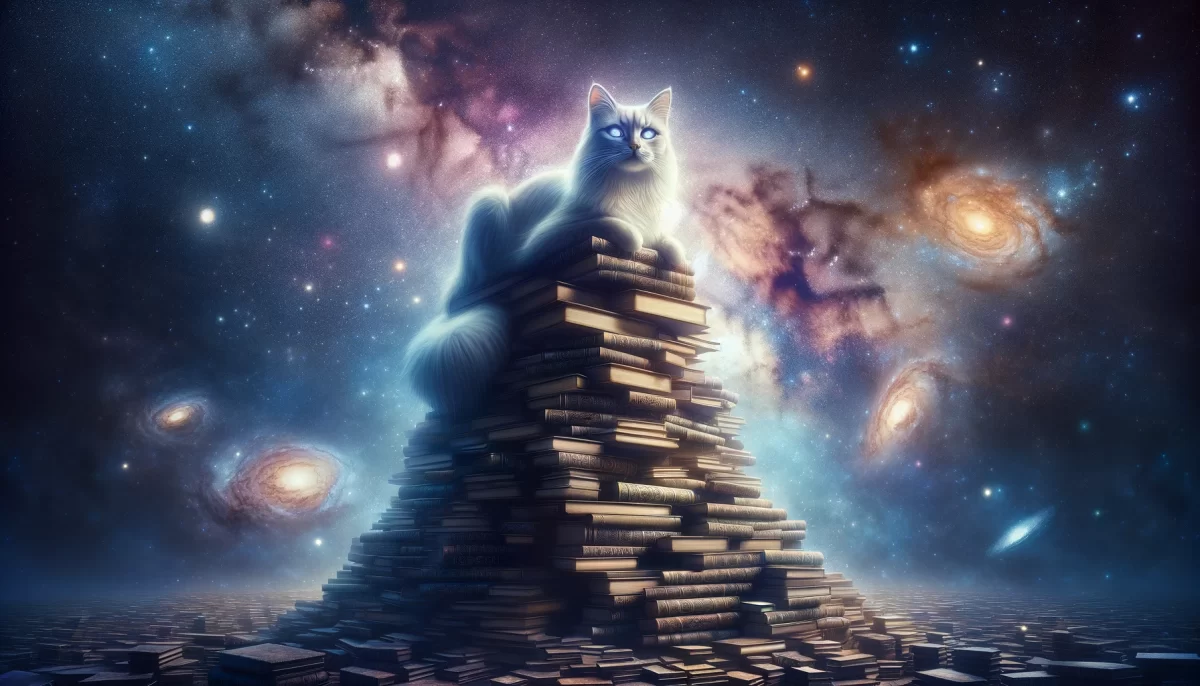
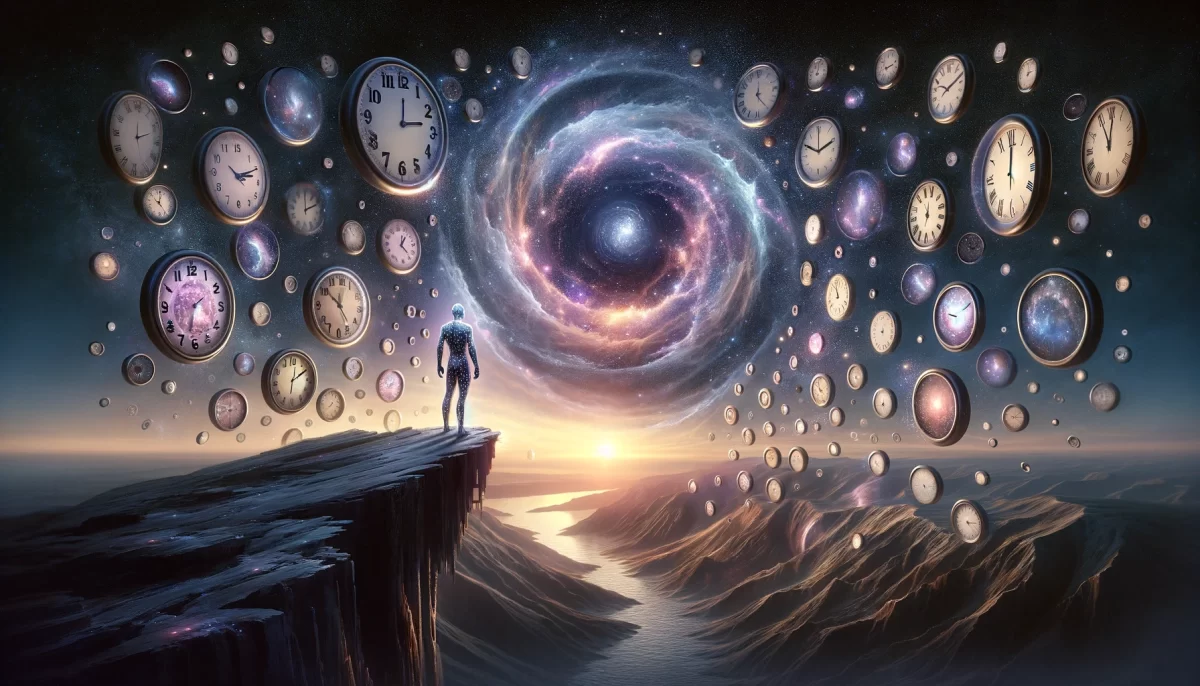


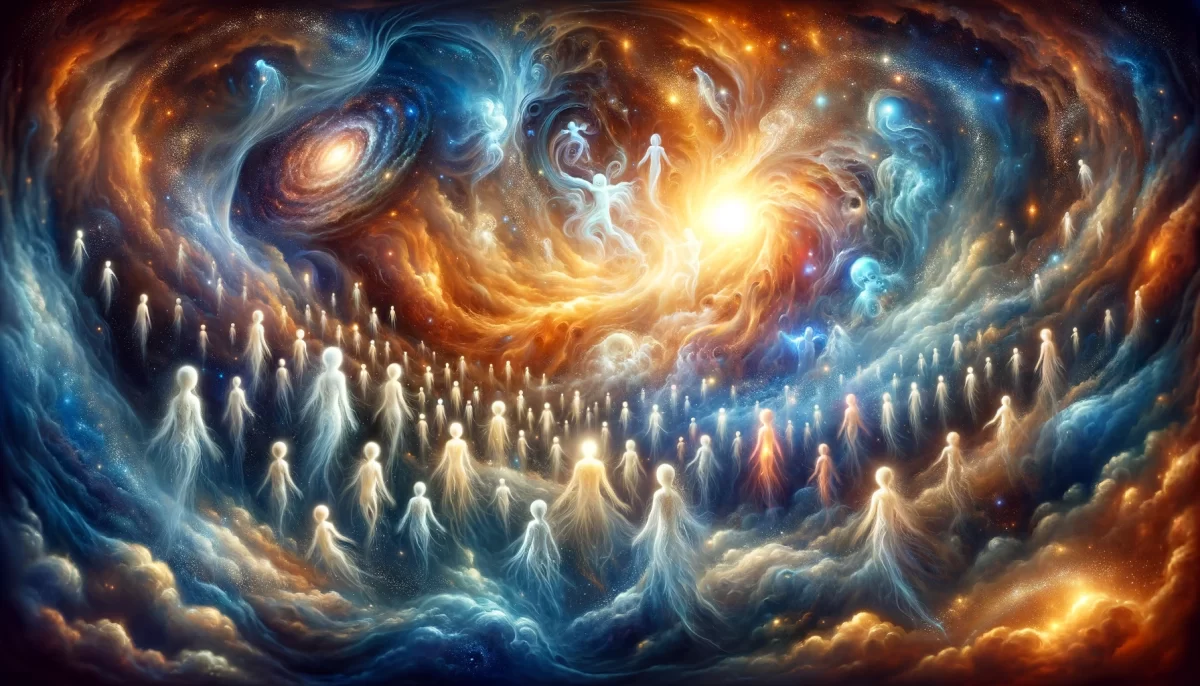

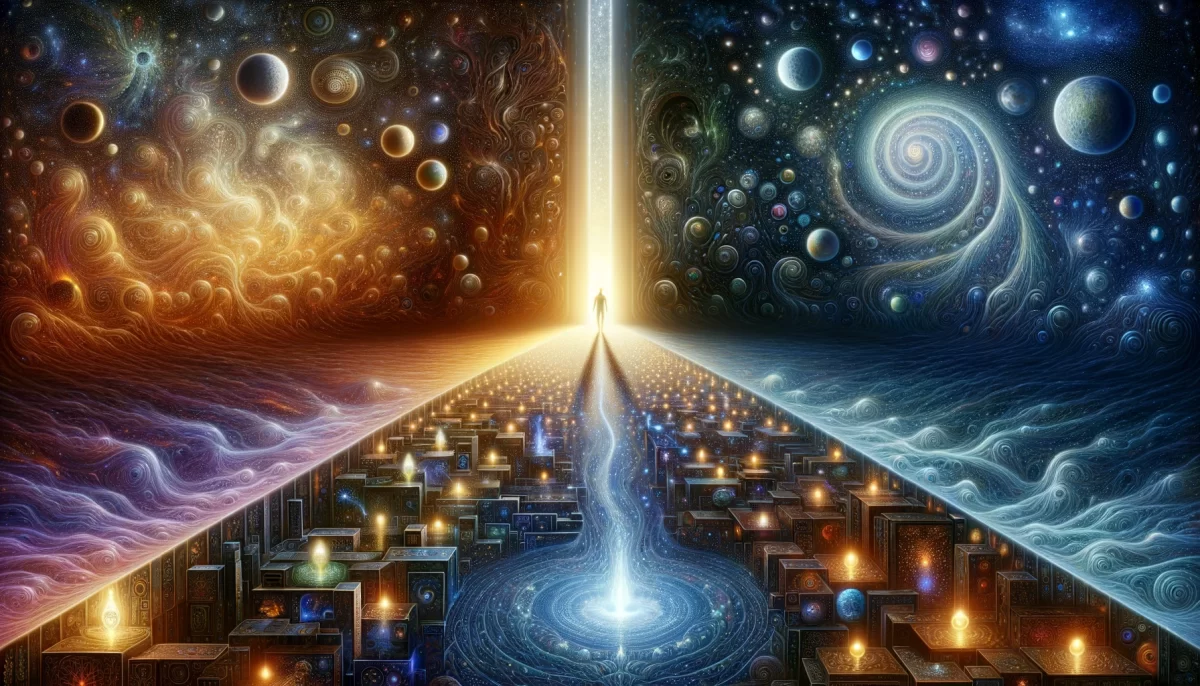
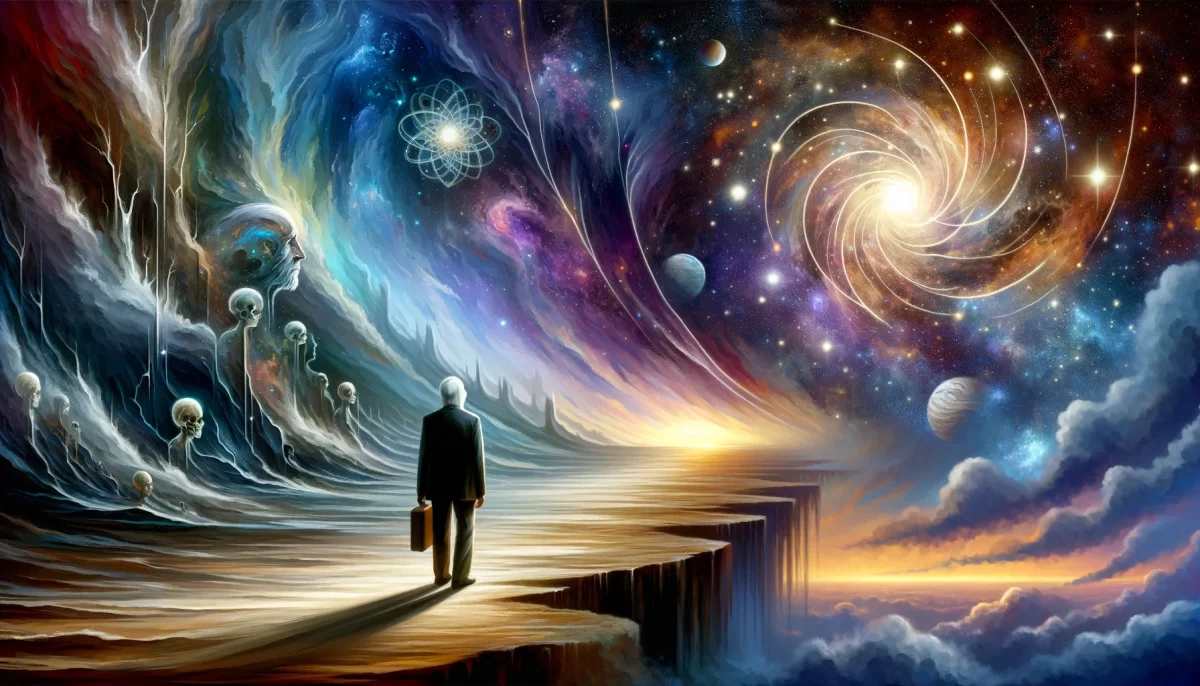


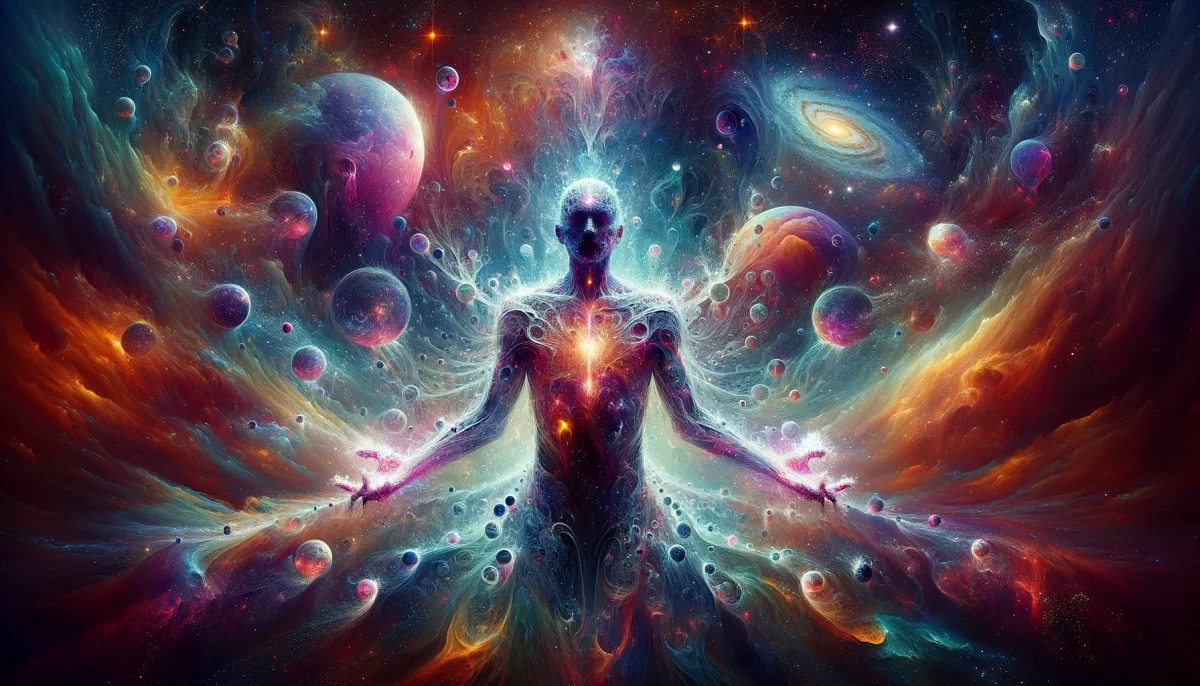
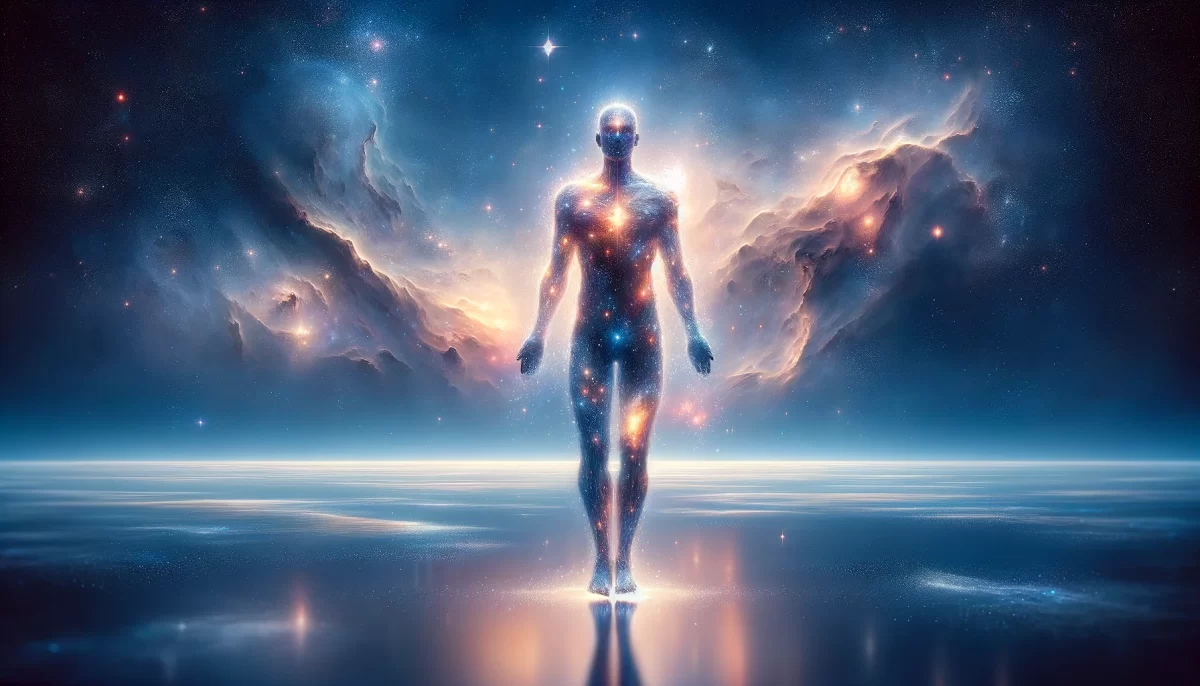

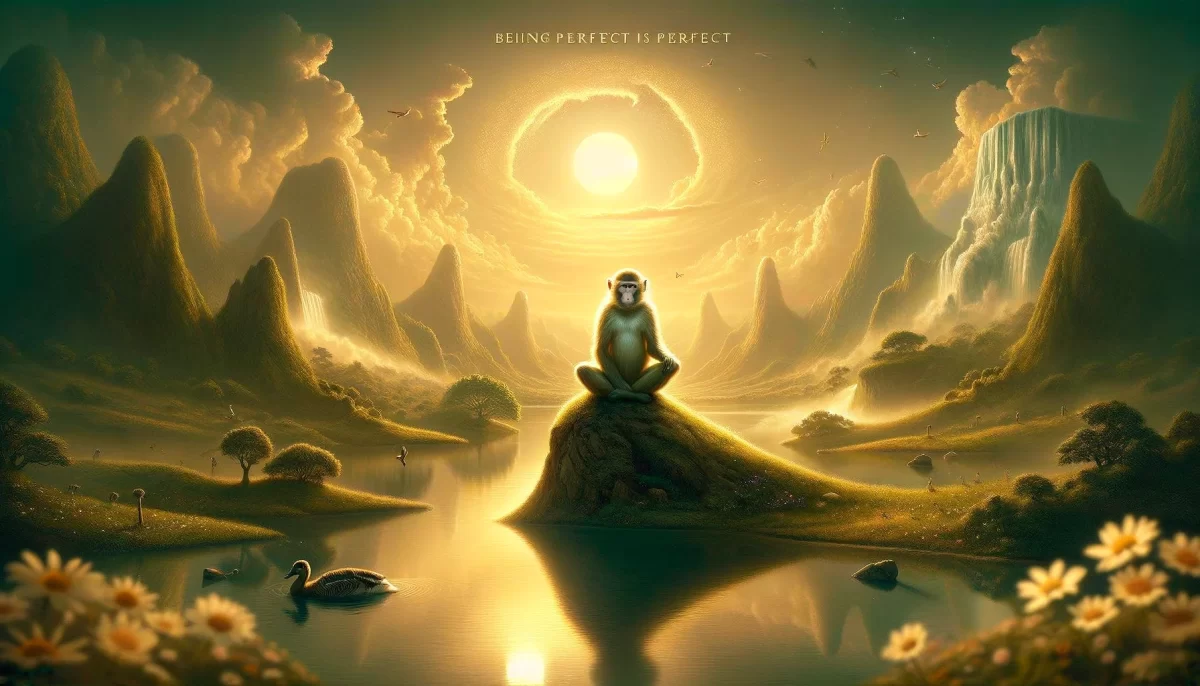
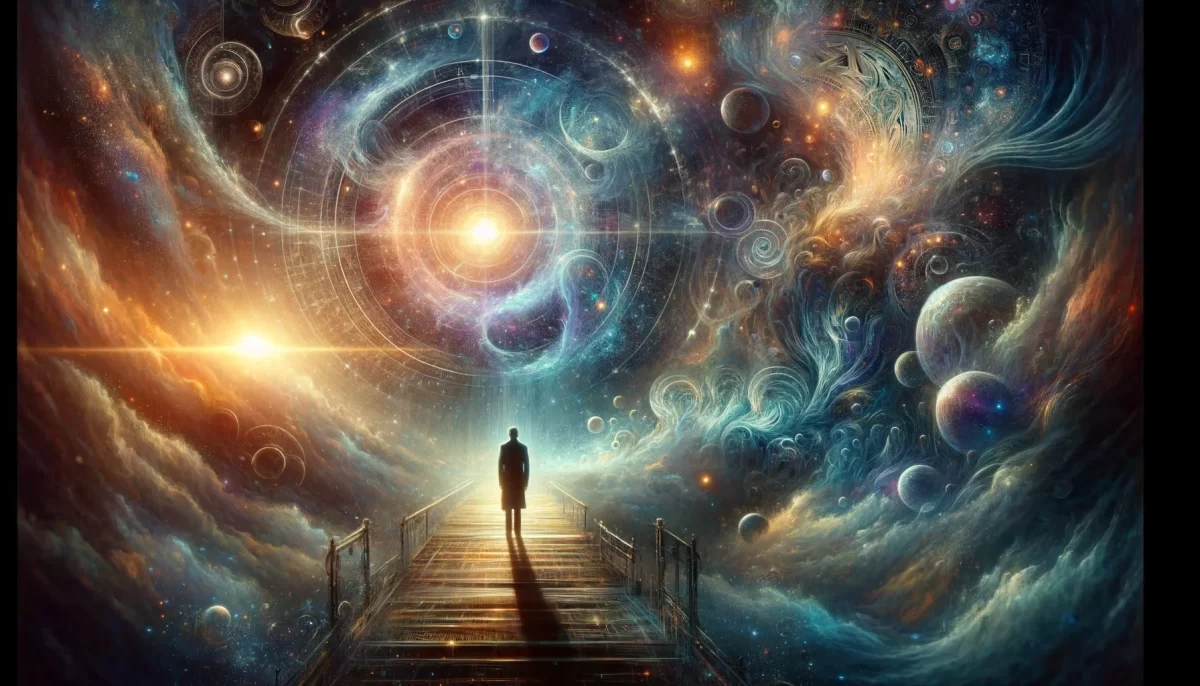

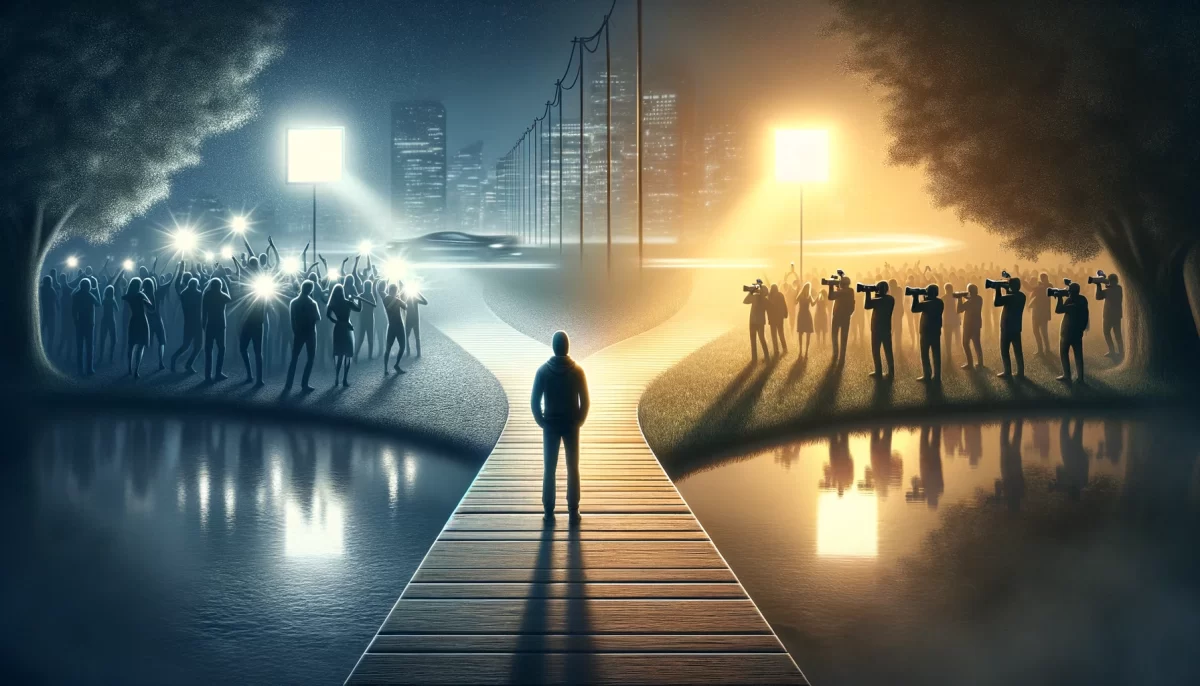



Interesting scenario! It’s a playful way to explore the idea of what it might be like if a divine being entered into the mundane world of humans and attempted to blend in. It’s a reminder that sometimes our preconceived notions of what a divine being might look like or act like could be completely off base.
The scenario also touches on the human tendency to fear and reject things that are different or outside of our understanding. In this case, the humans reject God because they don’t recognize God as one of their own. It’s a reminder that sometimes we need to look beyond our own biases and beliefs to truly see and understand the world around us.
Overall, this scenario prompts us to reflect on our own assumptions and limitations, and to consider what might be possible if we opened ourselves up to new experiences and perspectives.